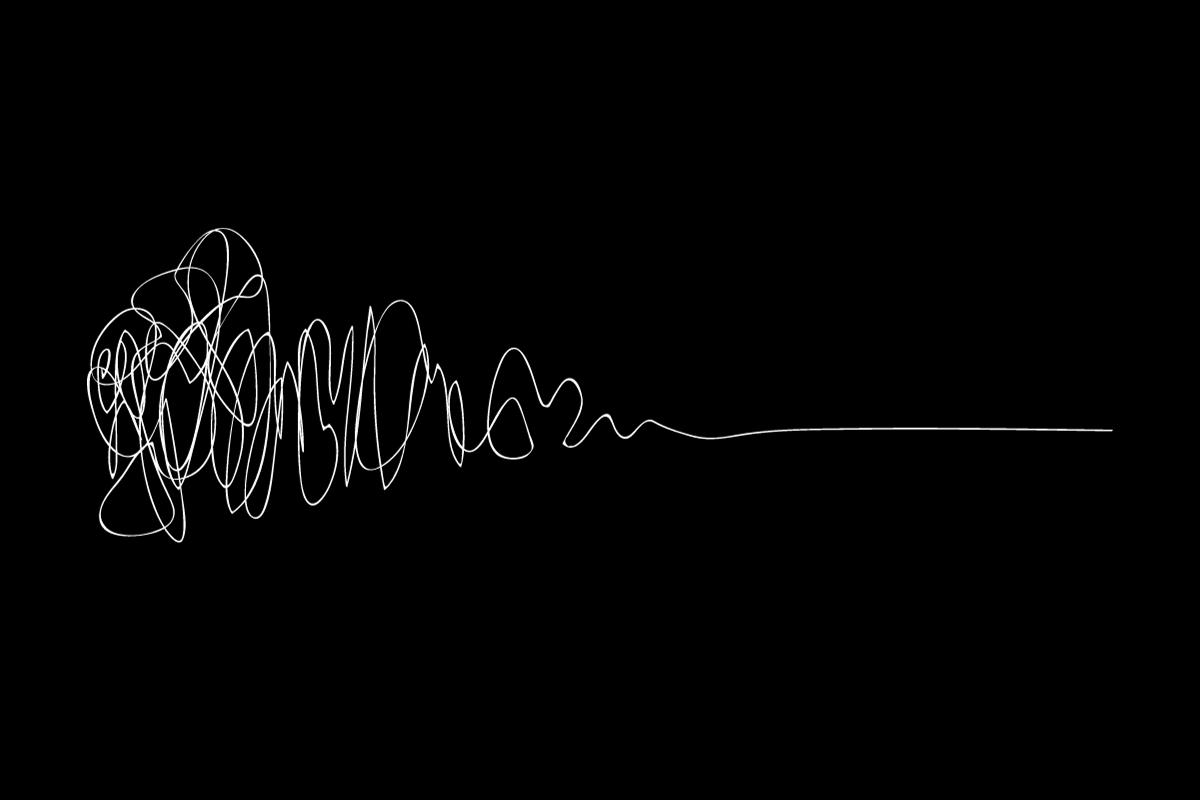The negative capability is connected to the design squiggle, the alchemy methods, the mindsets and mental models. All things are interconnected.
Today's insight connects the dots as follows.
- The design squiggle is the same as the alchemy method
- Both methods distill order out of chaos
- Both methods relate to negative capability
Do you like a chaotic situation in your daily life or in a project you're currently working on?
If you were a consultant, you might find yourself in some kind of chaos all the time. Clients have complex problems when they ask for your help. What they don't realise is that the causes of their symptoms are deep within their system. Whether it's digital or physical, the bigger the organisation they manage, the more complex the problems they have.
To solve these complex problems, I don't think you want to rely heavily on a single mental model, like Occam's Razor. Making things simple is very helpful for your clients' customers or partners, but it doesn't help you and your clients to understand what's going on as a whole system.
Most people tend to prefer simplicity to complexity. As human beings, we are more likely to choose an easy-to-understand message and a simple-to-use product in terms of cognitive load. On the other hand, people are more likely to believe that a complex system is highly intelligent or truth than a simple idea.
With this paradox, you and I have realised that we have been relying on very limited mental models with a relatively fixed mindset. To solve deep problems, we're better off using both simple and complex ideas. This means that we should use many mental models simultaneously with a growth mindset. In other words, both design and systems approaches are needed.
In addition, the art of alchemy is very useful for integrating both approaches. The art contains toolkits that your consciousness can use. Your consciousness uses a mind as a system component, your consciousness integrates multiple mental models with a mindset, and your consciousness derives a new order from the chaos of the vast mind-mental resource pool.
I think Immanuel Kant tried to explain this way of thinking and mind systems with the terms of a priori and a posteriori. A priori stands for a primordial order for a new human instance consisting of system components. The system components are a mindset with mental models derived from the chaotic resource pool that's so called the genetic mind.
The idea of negative capability is seen as a preferred capability when faced with a very chaotic situation. In this situation you need to challenge the status quo where it is volatile, uncertain, complex and ambiguous. This situation requires you to use multiple mental models and growth mindset(s) rather than using easy-to-think models such as Occam's Razor.
Negative capability is also similar to the design squiggle. In the observation and evaluation stages, you need to give yourself permission to embrace complexity with higher cognitive load. This is because you need to handle and process a lot of data in order to find multiple insights with actions. Too much speculation doesn't solve problems.
Mental alchemy is quite the same. When you go deep within yourself, you're being asked to do a massive letting go of your current mindset and mental models. If you continue to cling to a limiting domain of problems, you won't be able to find a new oder for solving problems. So alchemists grind and burn what they currently have until their egoistic mindset and mental models cease to function.
It actually scares you to put yourself in such a chaotic situation. It really irritates you. But it also gives you profound data to build a new insight. The insight will evolve into your wisdom if you keep using it it for evaluation. This is exactly what startups do with their minimum viable products (MVPs).
But the most important thing is to use multiple mindsets and mental models. Design thinking or service design alone won't solve complex problems. Systems theory alone won't make a breakthrough. Lean startup methods alone will produce tons of junk. These theories and methods are not bad, we just need to use them as part of a whole.
In any case, we're better off proactively putting ourselves in chaotic situations to find a new order. To do this, we need the negative capability not to jump to easy conclusions. This capability is useful not only for CEOs, but also for consultants. If you always skim off the surface of information when making decisions, you will create a more complex and chaotic situation.
